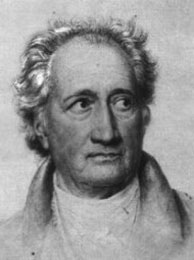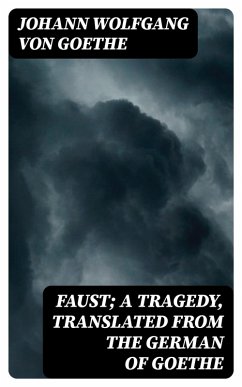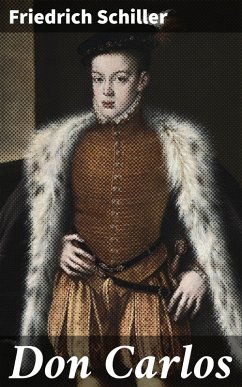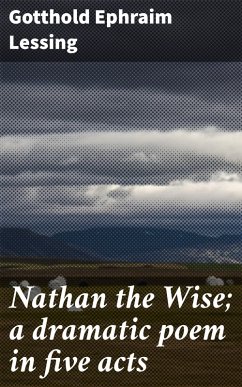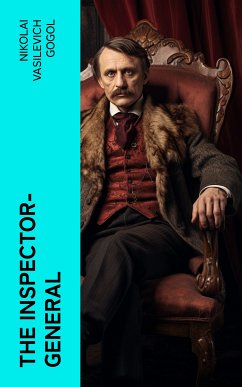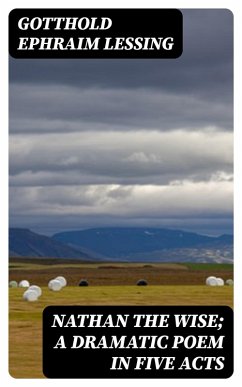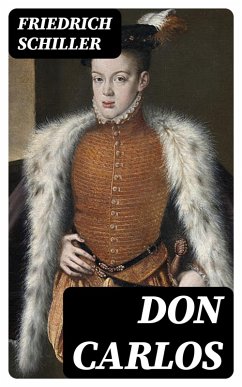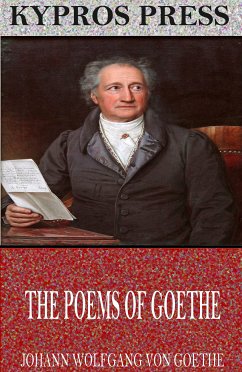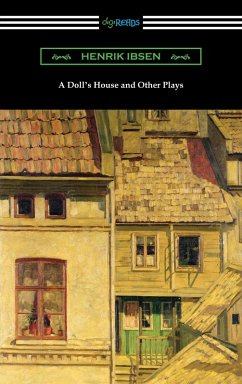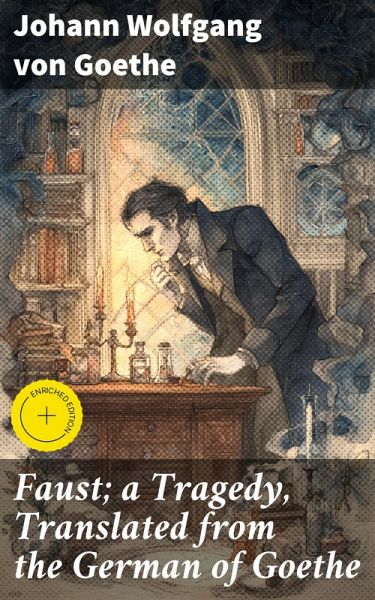
Faust; a Tragedy, Translated from the German of Goethe (eBook, ePUB)
Enriched edition. A Modern Exploration of Ambition and Consequences
Kommentar: Lancaster, Erica / Redaktion: Good Press / Übersetzer: Brooks, Charles Timothy

PAYBACK Punkte
0 °P sammeln!
Johann Wolfgang von Goethe's "Faust; a Tragedy, Translated from the German of Goethe" is an ambitious exploration of ambition, desire, and the human spirit, encapsulated in the character of Dr. Faust, a scholar who, dissatisfied with the limits of knowledge, makes a pact with the devil, Mephistopheles. Goethe's poetic mastery is complemented by a complex interplay of philosophical discourse and vivid imagery, intertwining elements of Romanticism and Enlightenment thought. This work not only reflects the zeitgeist of 19th-century Germany but also resonates universally, delving into the struggle...
Johann Wolfgang von Goethe's "Faust; a Tragedy, Translated from the German of Goethe" is an ambitious exploration of ambition, desire, and the human spirit, encapsulated in the character of Dr. Faust, a scholar who, dissatisfied with the limits of knowledge, makes a pact with the devil, Mephistopheles. Goethe's poetic mastery is complemented by a complex interplay of philosophical discourse and vivid imagery, intertwining elements of Romanticism and Enlightenment thought. This work not only reflects the zeitgeist of 19th-century Germany but also resonates universally, delving into the struggles of moral decision-making and existential yearning that transcend time and culture. Goethe (1749-1832), a titan of German literature, was influenced by the currents of Enlightenment and Sturm und Drang, movements that shaped his literary voice. His personal experiences with love, loss, and the search for meaning deeply inform "Faust," as he wrestled with similar existential dilemmas throughout his life. Goethe's extensive knowledge of literature, philosophy, and natural science also enriches this work, making it not merely a play but a deep intellectual treatise on the human condition. "Faust" is essential reading for anyone interested in the intricacies of the human spirit and its conflicts. Goethe's profound insights into love, despair, and the quest for redemption invite readers to reflect on their own lives while engaging with one of literature's most enduring characters. A compelling read, this tragedy stands as a pillar of Western literature, deserving of a place on every bookshelf. In this enriched edition, we have carefully created added value for your reading experience: - A succinct Introduction situates the work's timeless appeal and themes. - The Synopsis outlines the central plot, highlighting key developments without spoiling critical twists. - A detailed Historical Context immerses you in the era's events and influences that shaped the writing. - An Author Biography reveals milestones in the author's life, illuminating the personal insights behind the text. - A thorough Analysis dissects symbols, motifs, and character arcs to unearth underlying meanings. - Reflection questions prompt you to engage personally with the work's messages, connecting them to modern life. - Hand-picked Memorable Quotes shine a spotlight on moments of literary brilliance. - Interactive footnotes clarify unusual references, historical allusions, and archaic phrases for an effortless, more informed read.
Dieser Download kann aus rechtlichen Gründen nur mit Rechnungsadresse in A, B, BG, CY, CZ, D, DK, EW, E, FIN, F, GR, H, IRL, I, LT, L, LR, M, NL, PL, P, R, S, SLO, SK ausgeliefert werden.




